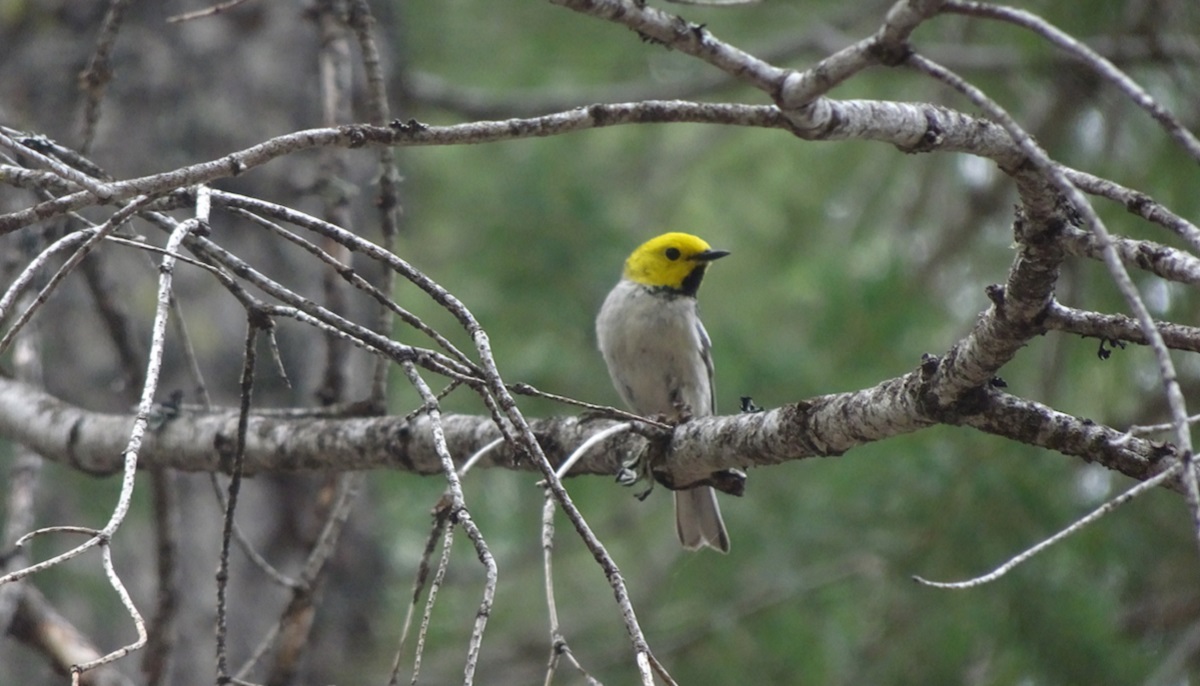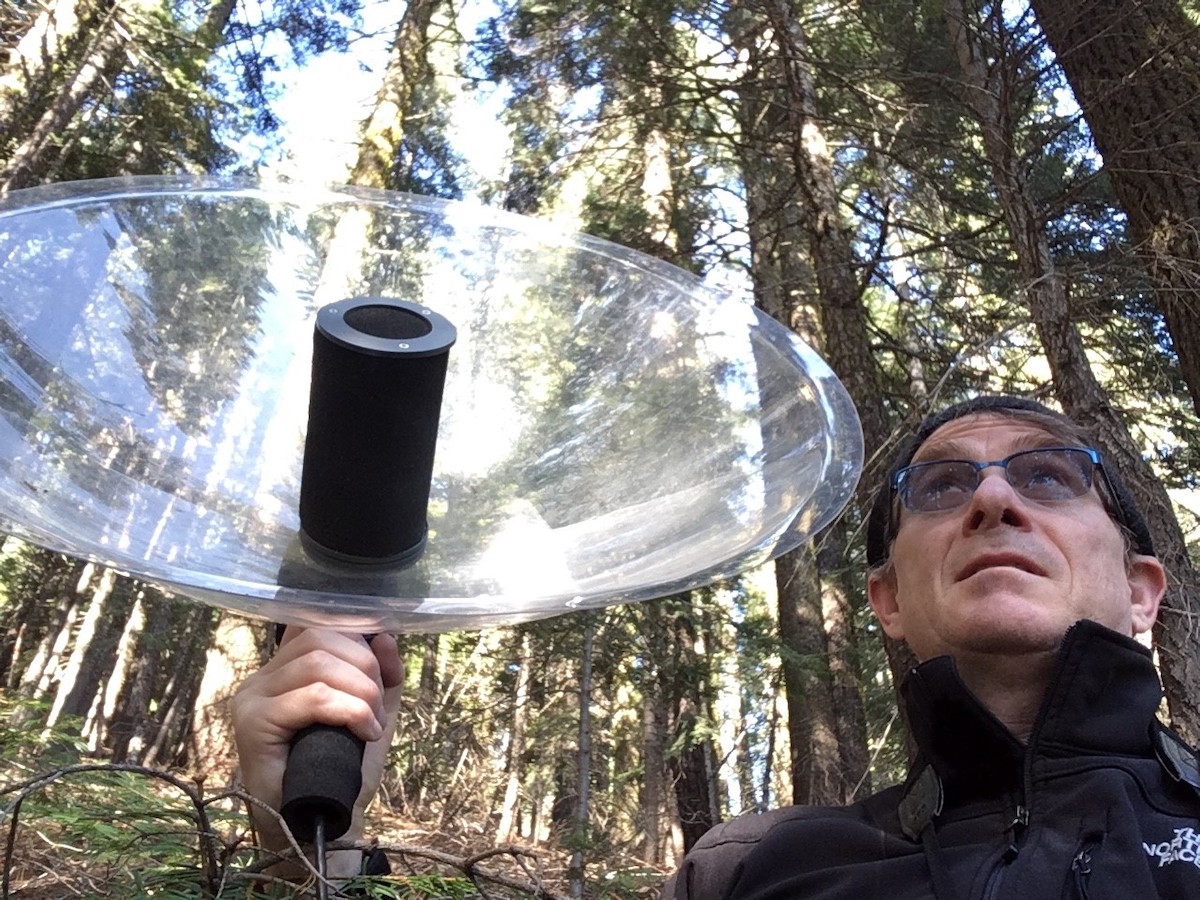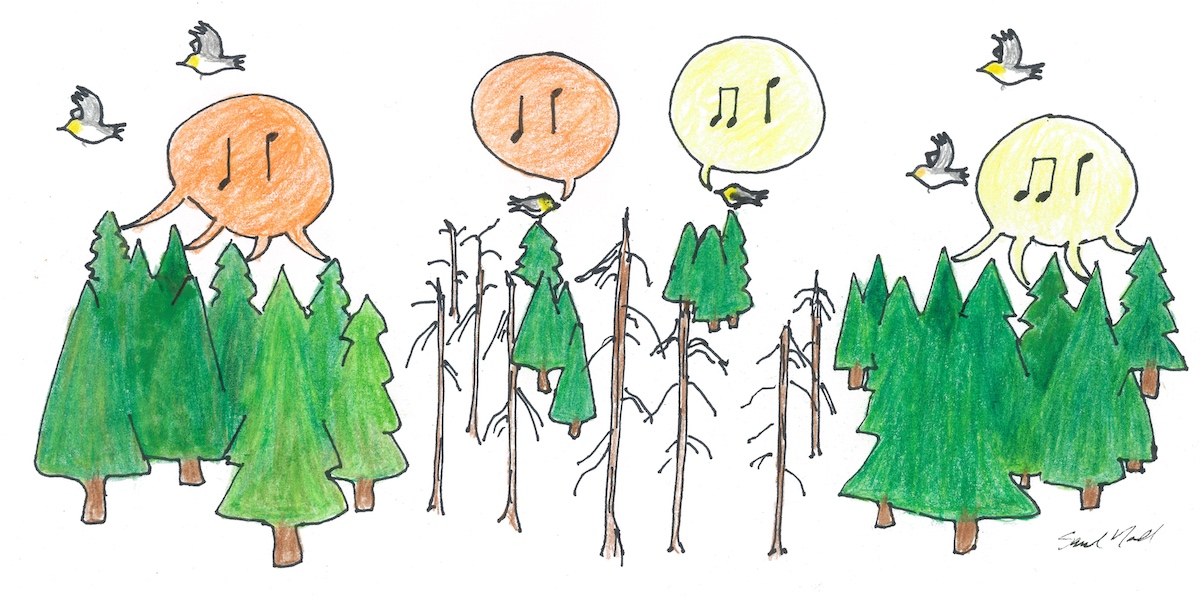Wildfires can change the tunes of birds in nearby forests, according to a new study published in The Auk: Ornithological Advances.
Birds learn the song of their species via imitation, which is influenced by cultural drift.
Similar to patterns of human language, like distinctly different iterations of English from London to the Scottish Highlands, bird tunes evolve diverse dialects in different geographical regions.

Their song thus offers a way to help understand biodiversity and conservation in ecosystems, a prime objective of Brett Furnas from the California Department of Fish and Wildlife in the US.
A decade ago, sound recorders in hand, he embarked on a project to survey the tunes of different songbird species.
“We noticed that we were having a difficult time distinguishing two closely-related warbler species (hermit and black-throated grey warblers),” he says, “because of the complexity and similarity of their songs.”
This curious observation evolved into dedicated road trips around California during summer breeding seasons to study the tunes of the little golden-faced hermit warblers (Setophaga occidentalis).
Passerines, or perching birds, such as the warblers sing a complex repertoire of tunes to defend their territory, and a simple formulaic song to attract mates.
Those in the same geographical areas tend to sing the same mate attraction song. “We believe their ability to perfectly sing this song affects their ability to find a mate,” says Furnas.
His team recorded more than 1500 hermit warbler songs from up to 20 birds at each of 101 study locations separated by at least 10 to 20 kilometres, forming the first comprehensive description and map of their dialects throughout the state.

By developing a rubric characterisation of differences in song structure, especially in the composition of the first phrase, they identified 35 distinct dialects of the mating song.
At a regional scale, the dialects correspond with different forest types and breeding habitats, suggesting the songs morph as a result of isolation – but at the local scale, wildfires disturb this pattern.
“We found that fires appear to disrupt this uniformity by causing some birds to temporarily flee and creating a vacuum that other hermit warblers, singing rival dialects, can colonise,” says Furnas.
“The net effect is a greater likelihood of birds singing different dialects at the same location.”
This creates a complex balance between isolation and mixing. Different songs at different sites is known as beta diversity, while multiple songs at the same site is called alpha diversity, Furnas explains – and both are important.
More broadly, this reflects the beneficial role of wildfires in ecosystems.
Up to a point, fires contribute to biodiversity; they can regenerate habitats by returning nutrients to the earth, clearing space for sunlight to nourish new growth and helping to unlock seeds from tough coatings.
Controlled burns can optimise these conditions, helping to prevent invasive plants and insects and overgrowth of flammable materials that could burn out of control.
Increasing incidence of uncontrolled, high intensity fires, however, could irrevocably destroy habitats. But this is not the only challenge confronting the hermit warblers.
They are currently threatened by hybridisation with the more aggressive Townsend’s warbler (S. townsendi) further north.
The researchers hope their bird distribution map will help conservation efforts to save the hermit warbler, as California might turn out to be its last summer refuge.
Meanwhile, readers can go here to enjoy the different bird song dialects for themselves.


Natalie Parletta
Natalie Parletta is a freelance science writer based in Adelaide and an adjunct senior research fellow with the University of South Australia.
Read science facts, not fiction...
There’s never been a more important time to explain the facts, cherish evidence-based knowledge and to showcase the latest scientific, technological and engineering breakthroughs. Cosmos is published by The Royal Institution of Australia, a charity dedicated to connecting people with the world of science. Financial contributions, however big or small, help us provide access to trusted science information at a time when the world needs it most. Please support us by making a donation or purchasing a subscription today.
"bird" - Google News
June 16, 2020 at 04:40PM
https://ift.tt/2N3Z64y
Birds change their tunes after wildfires - Cosmos
"bird" - Google News
https://ift.tt/2s1zYEq
https://ift.tt/3dbExxU
Bagikan Berita Ini














0 Response to "Birds change their tunes after wildfires - Cosmos"
Post a Comment